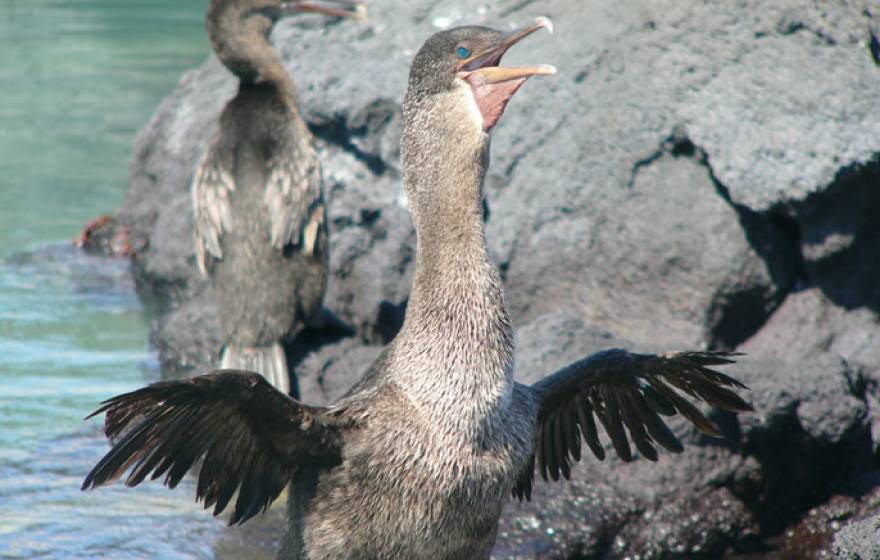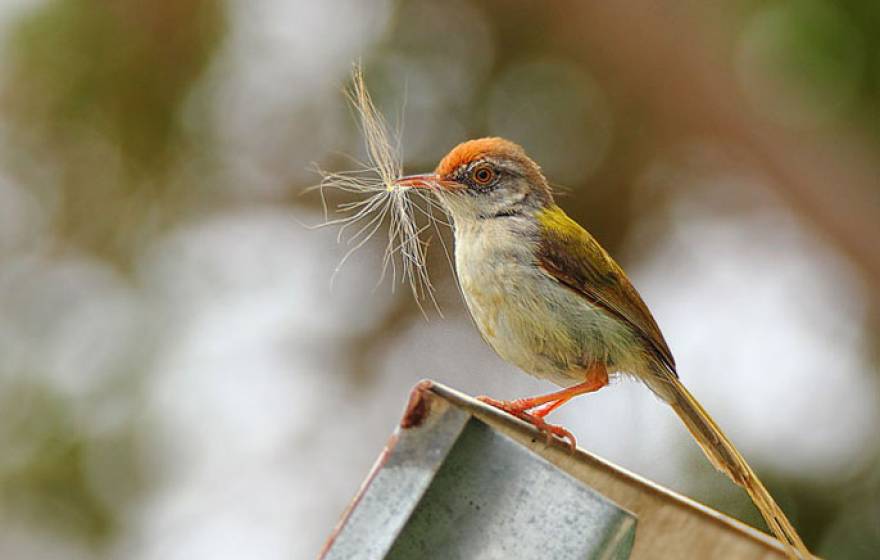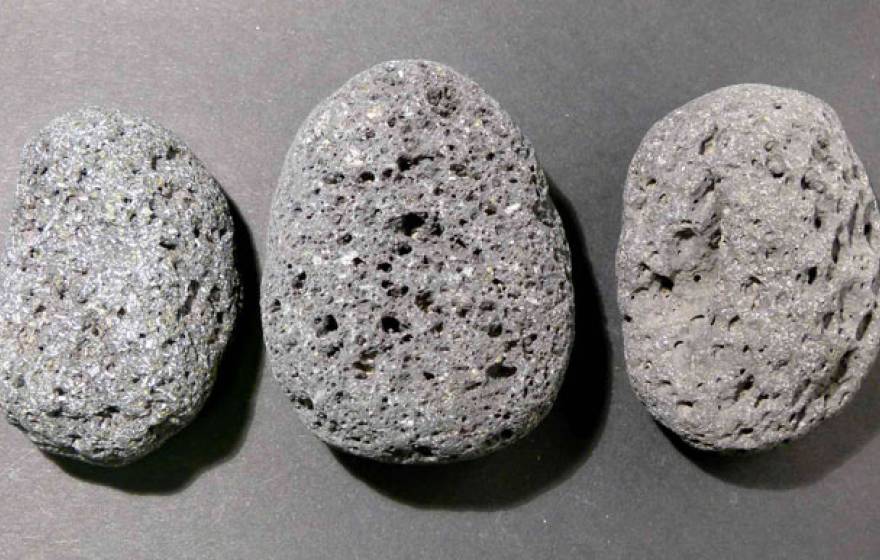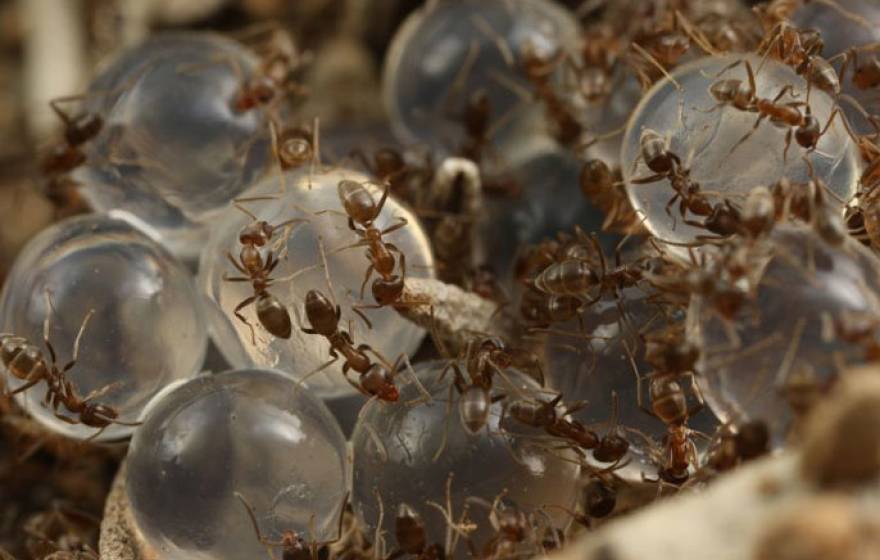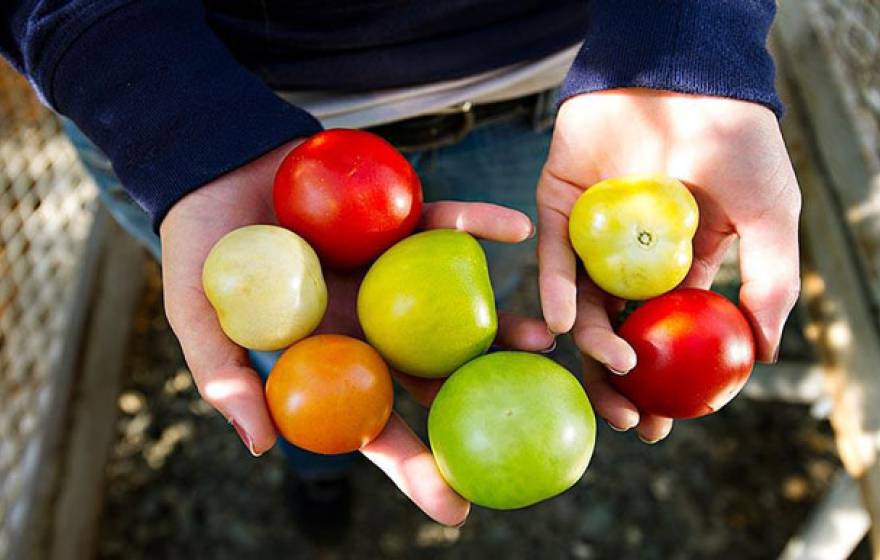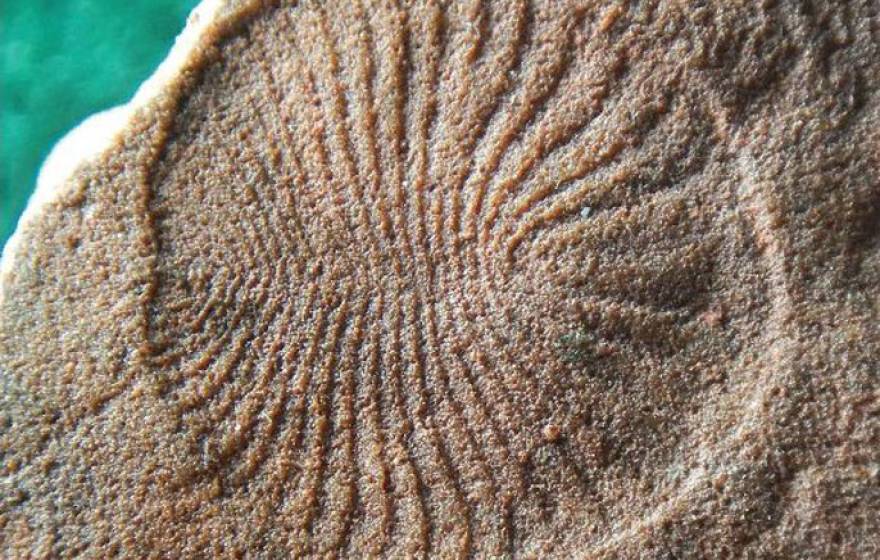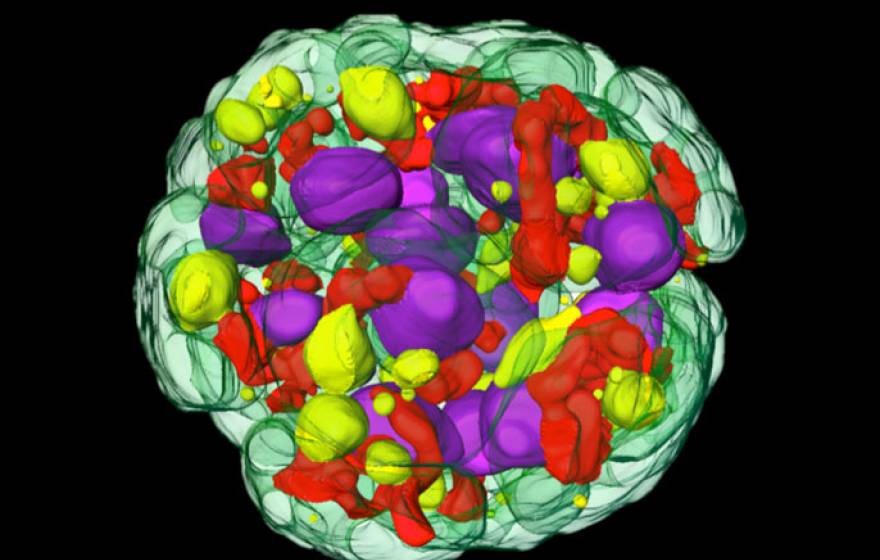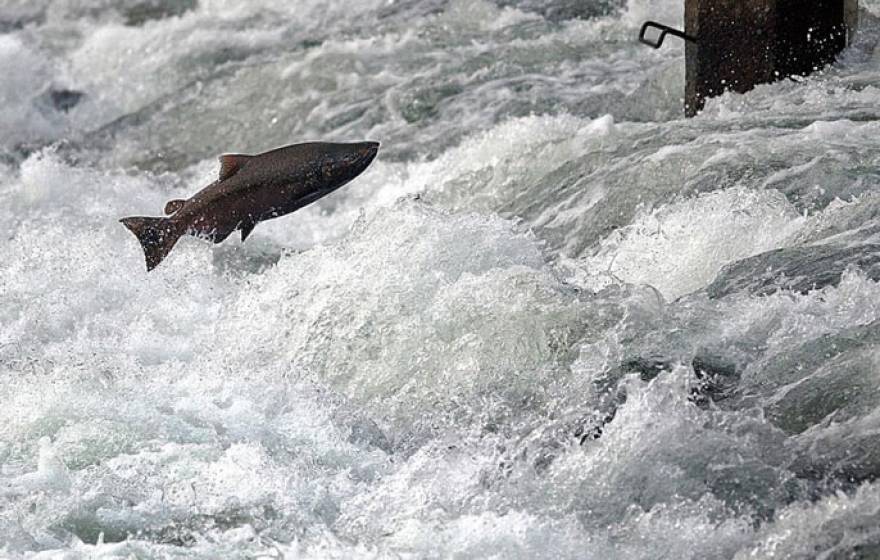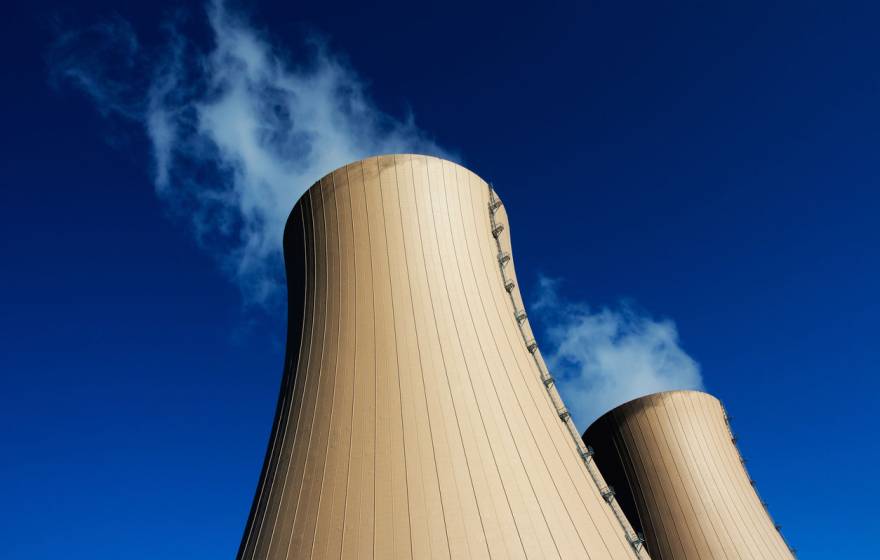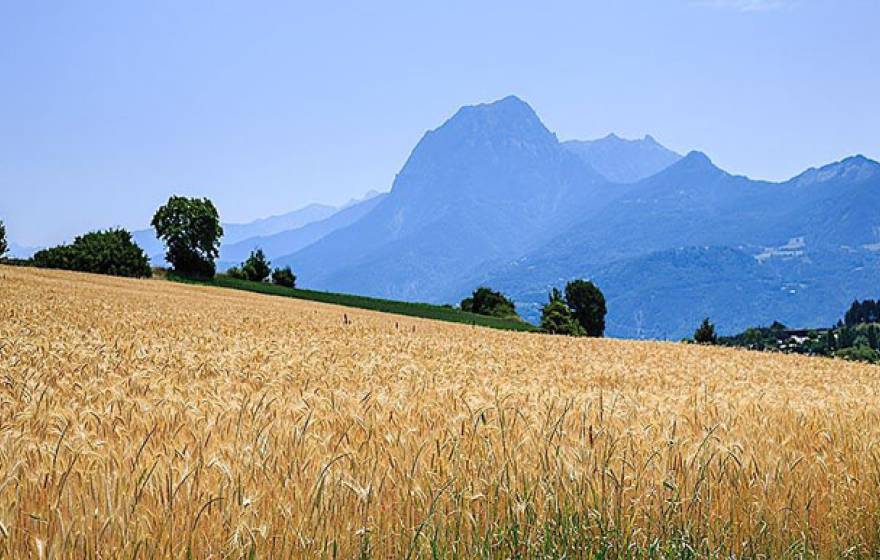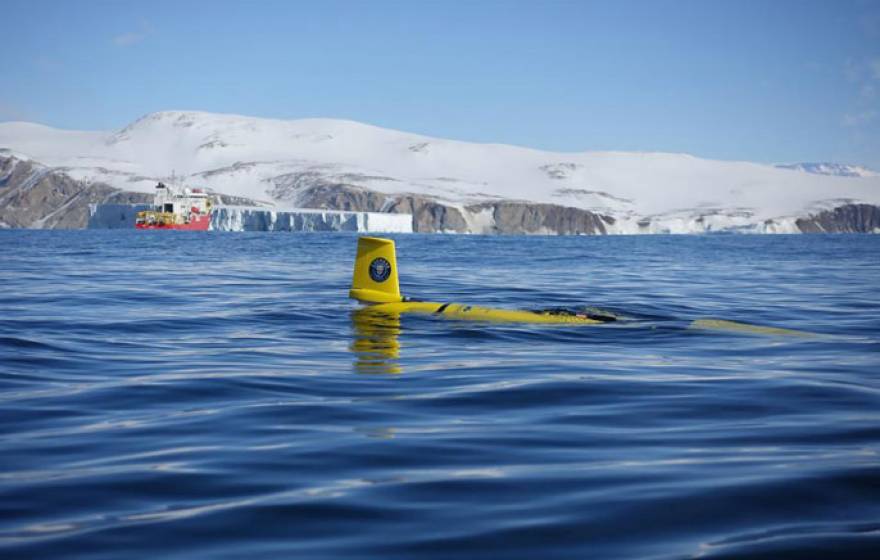Analyzing one of Darwin's favorite birds, a research team finds the genetic changes that clipped the bird's wings.
How climate change makes us all lose sleep
Millions of nights of insufficent sleep could be created by rising temperatures, study says.
The work ethic of birds
Scruples are found across the natural world and for good reason, new research shows.
Solving the mystery of floating rocks
Scientists uncover how pumice can remain buoyant for years.
Using seaweed to kill California's least favorite ant
Hydrogel baits could help control Argentine ants, the subject of 85 percent of the state's pest control services.
7 challenges for achieving global food security
UC Davis’ Helene Dillard leads the charge for more sustainable, equitable food systems.
Study of Earth's first animals broadens understanding of early evolution
Secrets of early life hide within one of the oldest fossil animals, Dickinsonia.
UC collaboration unlocks a key to biofuel
The algae in your fishtank could provide new fuel and medical applications, thanks to its UC-decoded genome.
Nearly half of California’s native salmon, steelhead and trout on track to be extinct within 50 years
The good news is it's not too late to reverse the trend.
The simple fact that could put the brakes on nuclear energy
If you follow the headlines, nuclear energy seems to be enjoying a bit of a renaissance. A new generation of nuclear innovators is emerging, young tech startups are poised to disrupt a lethargic industry, and there’s a palpable wave of optimism over the potential for nuclear power to help combat climate change. But at recent UN climate change conferences, the word “nuclear” was barely heard. Why the disconnect?
Climate change to reduce wheat yields by as much as a third, new model suggests
Agricultural technology can help bridge the gap.
Beneath the ice
An underwater robot explores inhospitable waters to help predict how and when Antarctic ice shelves collapse.
